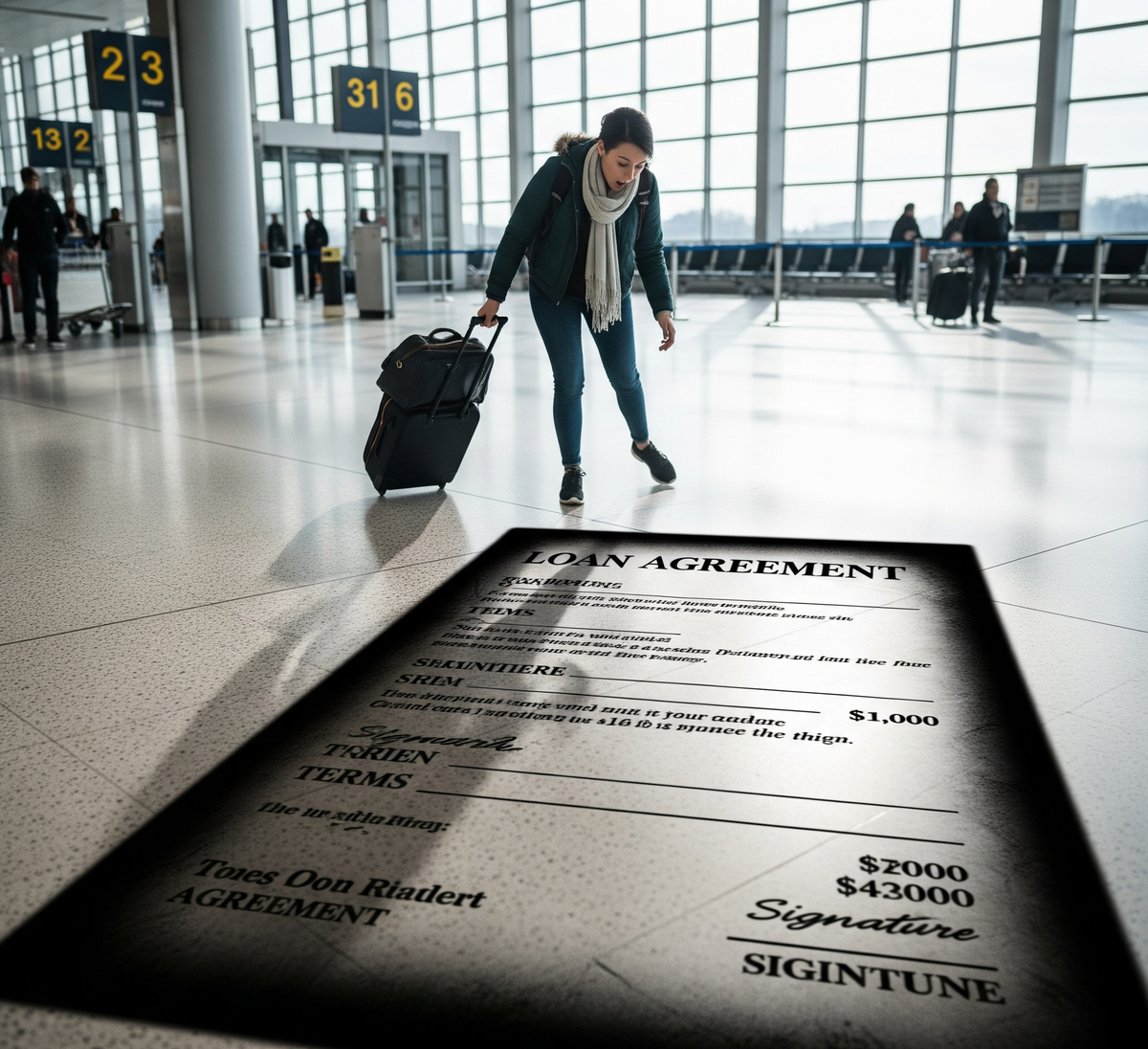Loan Defaulters & Travel Abroad: Can You Really Be Stopped at the Airport?
Though banks may request Look-Out Circulars (LOCs) for defaulters, courts have repeatedly held that restricting someone’s right to travel solely for a loan default violates fundamental rights.

When it comes to loan defaults in India, one of the biggest fears people have is—“Will I be stopped at the airport if I have unpaid EMIs or loan defaults?” This question keeps popping up in financial forums, WhatsApp groups, and even among borrowers planning to travel abroad for work or vacation.
The short answer is: No, you cannot be stopped at the airport just because you defaulted on a loan.
But—there are exceptions, legal angles, and rare cases where things can get complicated. Let’s break it down in detail.
Loan Default vs. Criminal Offense – The Legal Difference
- Loan default is a civil matter, not a criminal one.
If you miss EMIs or fail to repay a loan, the bank or NBFC cannot directly file a criminal case against you. Instead, they can approach civil courts, debt recovery tribunals (DRTs), or initiate arbitration. - No Look-Out Circular (LOC) for normal defaults.
Immigration authorities at Indian airports act only if there’s a criminal case, fraud case, or a Look-Out Circular issued against you. For a normal loan default, banks cannot request an LOC. - Exceptions exist. If the loan default involves fraudulent activity (for example, submitting fake documents, identity theft, or cheating under IPC), then criminal charges can be filed. In such cases, an LOC might be issued, and you could face trouble at immigration.
When Can Travel Restrictions Apply to Loan Defaulters?
- Fraud or Criminal Case Registered
- If a bank files an FIR for fraud or cheating, the police can request an LOC against the borrower.
- Example: Nirav Modi and Vijay Mallya cases—these weren’t just defaults, they involved fraud.
- Court Orders
- In rare cases, courts can restrict foreign travel if the borrower is deliberately avoiding repayment despite having the means to pay.
- Wilful Defaulter Tag (RBI Guidelines)
- If you’re declared a wilful defaulter (means you had money but chose not to repay), banks may escalate the matter legally. Even then, stopping you at the airport requires criminal proceedings, not just loan non-payment.
RBI Guidelines & Borrower Rights
The Reserve Bank of India (RBI) has been clear:
- Loan default is not a criminal act by itself.
- Borrowers cannot be harassed or threatened with “travel bans” by lenders.
- Banks must follow due process—send reminders, initiate recovery via legal channels, and approach Debt Recovery Tribunals.
So, if a collection agent or bank employee says “You’ll be stopped at the airport if you don’t pay”, remember—it’s a scare tactic, not the law.
Practical Reality – What Happens if You Default and Travel?
- Leisure travel or work visas are generally unaffected. Immigration officials do not check your credit score or loan status at the airport.
- Passport is not linked to credit score. Your CIBIL, Experian, or Equifax score is only used by lenders, not immigration.
- Credit impact remains. While you may fly abroad, your default stays in your credit report for 7 years, affecting your ability to get loans, credit cards, or even employment in finance-related jobs.
The Real Risks of Loan Default While Abroad
Even if you can fly, defaults carry long-term consequences:
- Legal notices may arrive at your permanent address.
- Your guarantor or co-signer may be harassed for payments.
- If you return to India, banks can initiate recovery proceedings against your assets.
- Future NRI loans, home loans, or business funding will be very difficult.
What Borrowers Should Do if They Have Loans & Travel Plans
- Don’t ignore EMIs. If you can’t pay, inform your bank and request restructuring or moratorium.
- Negotiate a settlement. But remember, settlements damage your credit history.
- Clear dues before applying for large visas. Some foreign embassies (e.g., Canada, UK) may look at financial stability indirectly through income and obligations.
- Keep communication open. Running away from loans only worsens the problem.
Final Word
To clear the myth once and for all: Loan defaults alone will not stop you at the airport in India. Immigration doesn’t track unpaid EMIs or bad CIBIL scores. But if your default escalates into fraud charges, court cases, or wilful default proceedings, that’s when you may face travel restrictions.
The best strategy? Don’t let your loan reach the default stage. If repayment feels difficult, talk to your lender early, restructure, or explore balance transfer options. Remember, flying abroad is temporary, but a poor credit history can ground your financial future for years.